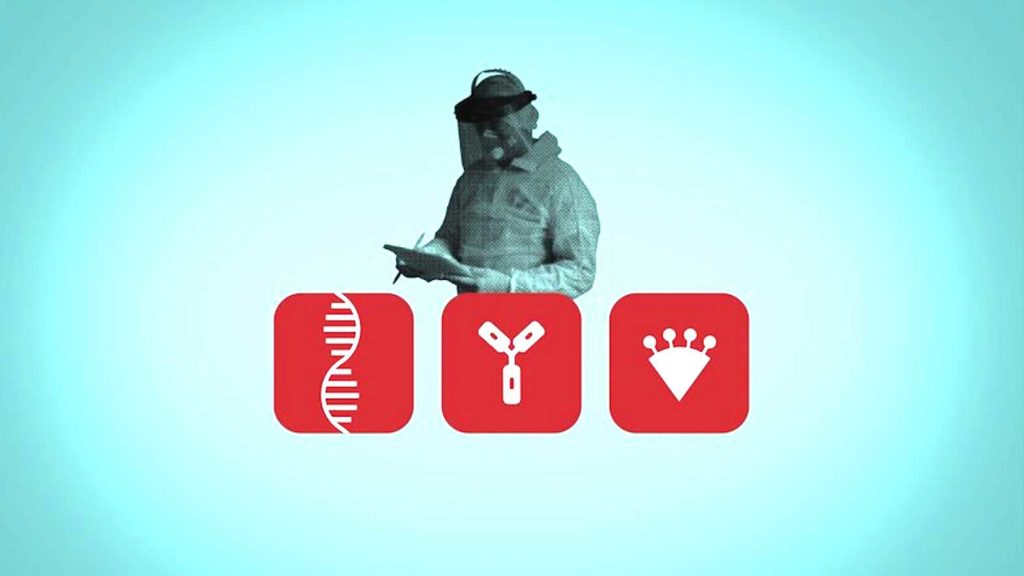What are the different types of Covid-19 tests?

PETER HAMLIN / AP
What are the different types of coronavirus tests?
There are three broad categories of coronavirus tests in the U.S. Two diagnose whether you have an active infection, and a third indicates if you previously had the virus.
Here’s how they work:
GENETIC TESTS
Most tests look for bits of the virus’ genetic material, and require a nasal swab that is taken by a health professional and then sent to a lab. This is considered the most accurate way to diagnose an infection, but it’s not perfect: The swab has to get a good enough sample so any virus can be detected.
These tests usually take hours to process at the lab so you likely won’t get results back for at least a day, though a handful of rapid tests take about 15 minutes on site. Other genetic tests use saliva, instead of a swab.
A newer type of test looks for proteins found on the surface of the coronavirus, rather than the virus itself. These antigen tests are just hitting the market, and experts hope they’ll help expand testing and speed up results.
Antigen tests aren’t as accurate as genetic tests, but are cheaper, faster and require less specialized laboratory equipment. They still require a nasal swab by a health professional.
A recently approved test from Abbott Laboratories takes 15 minutes and can be performed at schools, offices and other locations.
ANTIBODY TESTS
Antibody tests look for proteins that the body makes to fight off infections in a patient’s blood sample. Antibodies are a sign that a person previously had COVID-19.
Scientists don’t yet know if antibodies protect people from another infection, or how long that protection might last. So antibody tests are mostly useful for researchers measuring what portion of the population was infected.

